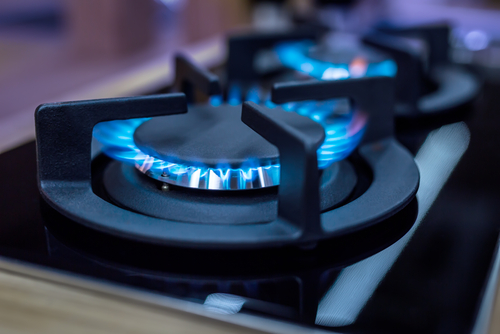Most Common Propane Myths
Introduction
Propane, commonly used for heating homes, powering appliances, and even fueling vehicles, is surrounded by numerous misconceptions that can skew consumer perception and decision-making. From safety concerns to environmental impacts, these myths not only misinform but can deter individuals from considering propane as a viable energy option. This article aims to set the record straight by debunking the most common myths about propane, providing factual information to help you make informed energy choices.
Myth #1: Propane is More Dangerous Than Other Fuels
Safety Records Comparison:
Contrary to common belief, propane is one of the safer fuel options available. It has a narrower range of flammability than other hydrocarbons, such as gasoline. According to the National Fire Protection Association, homes that use electric appliances are statistically more likely to experience a fire than those using gas appliances, including propane.
Safety Measures:
Propane has a strong safety record due in part to stringent regulations and industry standards. The propane industry adheres to strict codes and regulations set forth by the National Fire Protection Association and state energy boards. Additionally, propane has a distinctive odor added that makes leaks easy to detect, and it is stored in tank systems that are 20 times more puncture-resistant than those used for gasoline, diesel, and ethanol.
Myth #2: Propane is Bad for the Environment
Environmental Impact Comparison:
While no fossil fuel is completely ‘green,’ propane burns cleaner than many alternatives. It is listed as a clean fuel in the 1990 Clean Air Act because it produces significantly fewer pollutants than coal or oil. Propane emits 30% less carbon dioxide than gasoline in vehicles, 50% fewer toxins and smog-producing hydrocarbons than wood-burning stoves, and it does not harm ground or water resources, even in the event of a leak.
Propane as a Clean Energy Alternative:
Propane is recognized for its role in reducing greenhouse gases in applications where renewable energies are not feasible. As a bridge fuel, it can be integrated into renewable energy plans, aiding the transition towards lower carbon emissions. It’s also efficient: propane-powered appliances generally use less energy than their electric counterparts, which further contributes to environmental conservation.
Myth #3: Propane is Too Expensive
Cost Comparison with Other Energy Sources:
Initial perceptions may steer consumers to believe that propane is more expensive than natural gas. However, the efficiency of propane must be considered. Propane appliances generally have a higher Energy Star rating and convert more energy into usable heat. This efficiency translates into lower operational costs over time, despite the potentially higher initial fuel price.
Long-term Savings and Benefits:
Propane appliances are not only more efficient but also tend to have a longer operational lifespan than electric models. Moreover, because propane is versatile and portable, it provides an excellent option for areas that do not have direct access to a natural gas pipeline, saving substantial infrastructure costs.
Myth #4: Propane Appliances are Hard to Maintain
Maintenance Requirements:
Propane appliances are reputed to require high maintenance, which is a considerable exaggeration. In reality, the maintenance demands for propane appliances are quite manageable. Regular maintenance and inspections are necessary for all types of energy appliances to ensure efficiency and longevity, and propane units are no different.
Comparison with Electric and Natural Gas Appliances:
Maintenance for propane appliances might involve routine checks and occasional cleaning of burners and vents, which is very similar to the maintenance required for natural gas appliances. Propane can actually confer advantages over electric appliances, particularly where heating is concerned, as it can heat water twice as fast as electricity and tends to produce more consistent heat.
Final Thougths
This article has debunked several common myths surrounding propane, highlighting its safety, environmental benefits, cost-effectiveness, and ease of maintenance. Understanding the truth about propane allows consumers and businesses alike to consider it a viable and efficient energy choice. If you’re considering alternative energy sources, take a closer look at propane and consult with local propane experts to tailor solutions that best fit your needs.
Frequently Asked Questions
Can propane be used during power outages?
Absolutely, propane appliances do not rely on the electrical grid and can operate during outages.
What are the benefits of using propane for cooking?
Propane offers instant heat and more precise temperature control compared to electric stoves, making it a preferred choice for many culinary enthusiasts.
How does propane impact indoor air quality?
Propane burns cleanly and produces very few particulates, so it has minimal impact on indoor air quality, especially compared to fuels like wood.
Save up to 30% with Propane Depot
Save up to 30% on propane, plus get a monitor installed for free as long as your usage is over 100 gallons a year. If it’s under that there is a minimal charge for the monitor.
With our custom portal and phone app you can view your tank level online, order fuel (if you prefer to order yourself), view delivery history, pay your bill, see your current price and more. If you prefer to order yourself chose our Monitored Will Call service and our custom software will send you automatic text alerts when it’s time to order fuel so you don’t have to remember to log in and check your level. If you prefer to have us handle everything choose our Smart Fill service and we’ll watch the tank levels and usage, delivering automatically as needed.
We’re Long Island’s top rated propane company.
Click here to request a quote or call us at 631-400-SAVE
Propane Depot offers both residential and commercial propane services to the following towns:


